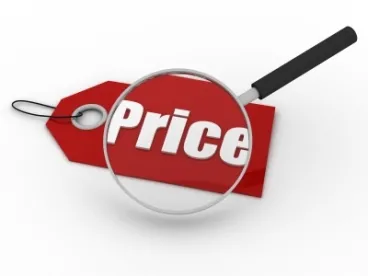Businesses may be wondering whether there is increased risk of price gouging liability when they impose higher penalty terms, ask for higher up-front payments, raise rates, or otherwise seek terms that may be more burdensome. Sellers and service provides should consider the risk of being held liable for non-price terms that result in higher customer costs.
Some direct price increases are expressly allowable. California, for example, allows that hotel or motel rates may be increased if directly attributable to “seasonal adjustments in rates that are regularly scheduled, or to previously contracted rates.” Cal. Penal Code § 396(d). Exceptions related to cost increases are also frequently permitted, as discussed previously.
The majority of state price gouging laws do not address the question of non-price terms head on. Nonetheless, the perception that customers may suffer from a lesser bargaining position may impact how alleged price increases are perceived and potentially investigated. Several state attorneys general describe price gouging as involving unequal bargaining power when explaining to consumers how to identify and report concerns. The Maryland attorney general’s website explains price gouging to consumers by saying the term is defined as “sellers attempting to take unfair advantage of consumers during the COVID–19 emergency by excessively increasing prices for essential consumer goods and services.” A similar explanation by the California attorney general defines price gouging as “sellers trying to take unfair advantage of consumers during an emergency or disaster by greatly increasing prices for essential consumer goods and services.” The Texas attorney general’s explanation of “How to Spot and Report Price Gouging” advises that, “if a disaster has been declared … and businesses raise the price of their products to exorbitant or excessive rates to take advantage of the disaster declaration, then it is quite likely that price gouging is taking place.”
The New York state price gouging law explicitly incorporates the concept of unequal bargaining power, and past decisions indicate how courts are likely to interpret the NY statute. Though New York’s price gouging law only applies to a subset of goods and service—it prohibits selling goods or services that are “vital to health, safety or welfare of consumers” for an “unconscionably excessive price”—the question of unequal bargaining power plays a definite role in determining whether prices, or other terms of sale, violate the state law. When the Attorney General brings an action alleging price gouging, the court must determine whether the price increase was “unconscionably extreme.” This is a question of law for the court to decide based on, among other things, whether there was an “exercise of unfair leverage . . .” General Business Law § 396-r(3)(a).
New York courts have held that a “showing of a gross disparity in prices, coupled with proof that the disparity is not attributable to supplier costs, raises a presumption that the merchant used the leverage provided by the market disruption to extract a higher price.” People v Two Wheel Corp.
In People v. Two Wheel Corp., the New York price gouging statute was applied to a generator distributor for its pricing in the aftermath of Hurricane Gloria. The defendant was charged with selling generators for prices ranging from 4% to 67% over the distributor’s base prices immediately before the hurricane. In its decision, the New York State Court of Appeals explained that price gouging takes place when a merchant “enjoys a temporary imbalance in bargaining power by virtue of an abnormal level of demand, in terms of both the number of consumers who desire the item and the sense of urgency that increases that desire.” Id. at 697. This imbalance can grant sellers and service providers leverage “to extract a higher price.” Id. at 698.
The burden is on the defendant to rebut the presumption of improper leverage. A more recent example of a business failing to do so is in People ex rel. Spitzer v. Wever Petroleum, Inc., which dealt with a gas station’s pricing after Hurricane Katrina. The court considered the increase in the wholesale cost of gasoline, compared it to the price the gas station was charging customers, and found that while the “increase in retail price [may have been] the result of a supplier increase,” the gas station failed to rebut the inference that the price increases were attributable to [their] use of the leverage provided by the market disruption and were therefore unconscionably excessive.” Id. at 816. (The court imposed a $2,500 penalty for price gouging plus $2,000 in costs.)
Additionally, even in situations where price gouging laws do not apply, federal antitrust law prohibits selling the same product at different prices to similarly situated business customers. Many customers have asked for and will continue to ask for extended payment terms based on decreases in business and other economic factors. To ensure their responses are fair and in compliance with antitrust laws, companies should develop and apply consistent standards for determining how they will respond and when they will extend credit or payment terms to their customers.
As always, businesses that carefully document their costs and their decision-making processes will put themselves in a better position to demonstrate that any direct or indirect increase in prices of a good or service (through payment terms or other terms) during an abnormal market disruption is permissible and defensible.







 />i
/>i

